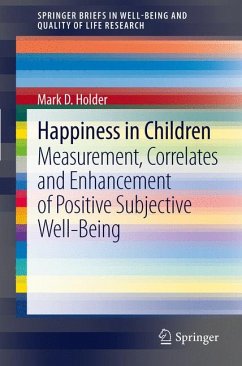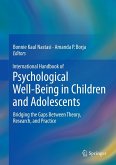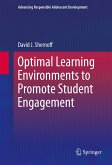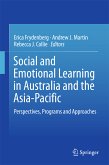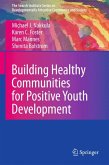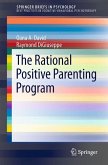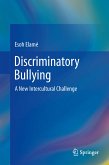This briefs summarizes the research on positive well-being in children, with a particular focus on their happiness. It starts with a discussion of the constructs of positive psychology (i.e., well-being, happiness and life satisfaction), and then outlines the research that shows the importance of studying well-being. Next, it explores how researchers measure happiness and what these measures tell us about whether children are happy and how their happiness differs from adults. Following this, it discusses current positive psychology theories with the aim of suggesting their promise in understanding children's well-being. Next, it examines the importance of individual differences, including culture and temperament. Because studies have only recently identified several of the factors associated with children's happiness, the book ends with a discussion of how we might enhance children's well-being and suggests directions for future research.
Dieser Download kann aus rechtlichen Gründen nur mit Rechnungsadresse in A, B, BG, CY, CZ, D, DK, EW, E, FIN, F, GR, HR, H, IRL, I, LT, L, LR, M, NL, PL, P, R, S, SLO, SK ausgeliefert werden.

